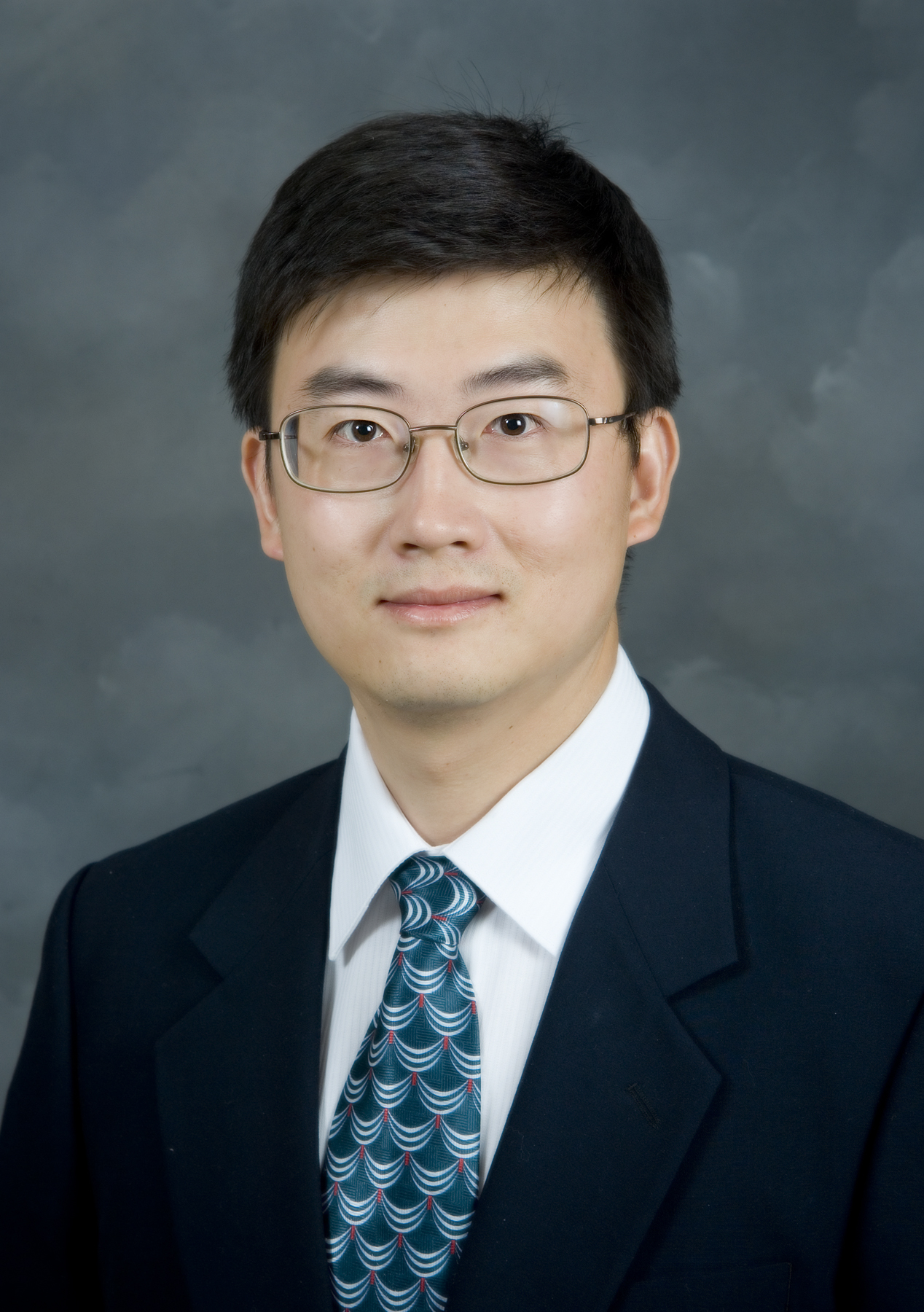简介:信明,1993年毕业于南京航空航天大学自动控制系获学士学位,1996年在同系获硕士学位, 2002年在密苏里大学罗拉分校获得航空航天专业博士学位,之后留校做博士后,从事制导与控制领域的理论研究。从2006年开始受聘于美国密西西比州立大学,先后任助理教授、副教授,并获终身教职。于2013年受聘于美国密苏里大学,任职副教授并终身教职。
信明教授长期从事航空航天飞行器器制导、控制、估计与滤波的研究工作,是最优控制理论![]() 方法的开创者, 主持和参与了NSF、AirForce、Navy、NASA等研究机构的多项科研项目,已经在IEEETransactions on Automatic Control、AIAAJournal of Guidance, Control and Dynamics、Automatica、IEEETransactions on Control Systems Technology、IEEETransactions on Aerospace and Electronic Systems等国际知名期刊和会议发表论文100多篇。其研究成果获得美国国家自然科学基金青年学者奖(NSF Career Award)等多项奖励。
方法的开创者, 主持和参与了NSF、AirForce、Navy、NASA等研究机构的多项科研项目,已经在IEEETransactions on Automatic Control、AIAAJournal of Guidance, Control and Dynamics、Automatica、IEEETransactions on Control Systems Technology、IEEETransactions on Aerospace and Electronic Systems等国际知名期刊和会议发表论文100多篇。其研究成果获得美国国家自然科学基金青年学者奖(NSF Career Award)等多项奖励。
信明教授现在担任AIAA Journal of Spacecraft andRockets和ASME Journal ofDynamic Systems, Measurement, and Control期刊的副主编,多次担任AIAAGuidance, Navigation, and Control Conference、AIAAAtmospheric Flight Mechanics Conference、AmericanControl Conference (ACC)、IEEE Conference onDecision and Control (CDC) 等国际会议的程序委员会主席和分会场主席。信明教授是AIAAAssociate Fellow, 美国航空航天协会飞行力学技术委员会委员,美国航天协会 (AAS)高级会员, 以及国际电气电子工程师协会高级会员(IEEE Senior Member).

1. NonlinearOptimal Control of the Next Generation Reusable Launch Vehicles
Abstract:Currentflight control of reusable launch vehicles is based on the PID control withtable look-up gains for specific flight conditions. This method demands a longand iterative design cycle and is not robust to uncertainties. A new nonlinearoptimal control technique is presented to show many advantages over the PIDcontrol. The new technique, called the θ–D method, can give aclosed-form optimal control law via an approximate solution to theHamilton–Jacobi–Bellman equation. A controller using this new method has beendesigned for the ascent phase of a reusable launch vehicle and implemented in asix-degrees-of-freedom high-fidelity simulator. Simulation results show thatthe θ–D controller achieves accurate tracking while being robustto external disturbances and plant uncertainties.
2. Indirect RobustControl of Spacecraft in Proximity Operations
Abstract:A newmethod is presented for robust control of spacecraft in proximity orbitservicing operations. The pursuer spacecraft is controlled to autonomouslyapproach a tumbling target at a specified safe position and align its dockingport towards the one on the target while keeping their attitude synchronized.Flexible motion, parameter uncertainties, and external disturbance areconsidered in the control design to enhance the robustness. The indirect robustcontrol is to formulate the robust control problem as an optimal controlproblem. It can be shown that the robust control of the nonlinear uncertainsystem is equivalent to the optimal controlled nominal system with a modifiedcost functional including uncertainty bounds such that both stabilization and optimalperformance can be achieved.
3. Multi-AgentCooperative Control via Unified Optimal Control Approach
Abstract:Aidedby the rapid advances in computing, communication, sensing and actuation,research in control of multi-agent systems performing cooperative tasks hasbeen growing tremendously since 1990s. Cooperative control of multi-agentdynamic systems brings about many new challenges not existing in the singleagent system. In order to cope with these challenges, an integrated optimalcooperative control strategy is presented to formulate the multi-objectivecooperative control problem into one unified optimal control framework. Manyimportant cooperative behaviors, such as consensus, cooperative tracking,obstacle/collision avoidance, flocking with cohesion and repulsion, can betreated in one optimization process. Using an innovative inverse optimalcontrol method, a closed-form optimal cooperative control law can be obtained.In addition, the control law is distributed and only depends on the localneighboring agents’ information. Owing to these properties, the cooperativecontrol law can be easily implemented in real time and scaled to a large numberof agents. Applications to the flocking problem andmultiple UAV formation flying are presented.
4. Vision-basedSpacecraft Relative Navigation Using Sparse-Grid Quadrature Filter
Abstract:Relativenavigation of spacecraft is of utmost importance to many space missions, suchas rendezvous, docking, and formation flying. Vision-based relative navigation of two spacecraft is presented using anew nonlinear estimation technique named the sparse-grid quadrature filter. Therelative navigation provides the estimates of the relative orbit and relativeattitude as well as the gyro biases. It is a challenging problem because of itshigh nonlinearity and dimensionality. The extended Kalman filter (EKF) and theunscented Kalman filter (UKF) have been used in the past to solve this problem.However, these filters are not accurate enough in the presence of large initialuncertainties or high nonlinearities. Moreover, although other filters, such asthe Gauss–Hermite quadrature filter and the particle filter, can be moreaccurate than the EKF and UKF, they are hard to use in this high-dimensionalestimation problem since a large number of quadrature points or particles arerequired and therefore the computation complexity is prohibitive. It is shownthat the new sparse-grid quadrature filter can achieve much higher estimationaccuracy than EKF, UKF, and the cubature Kalman filter without excessivecomputation load.
报告时间:2015年6月3号-4号上午9:00-12:00, 报告地点:A3-318
国际交流合作处、航天学院

江苏省南京市江宁区将军大道29号
南京航空航天大学将军路校区航天学院
邮政编码:211106
